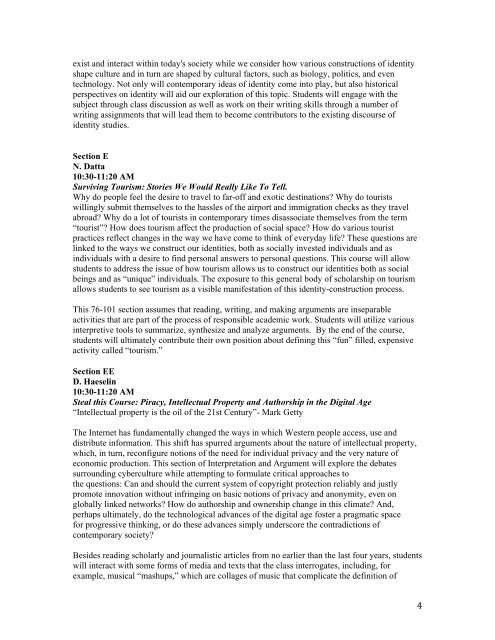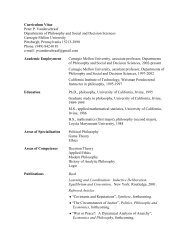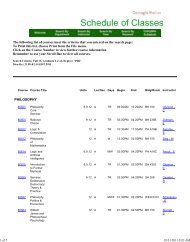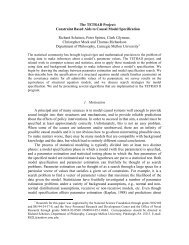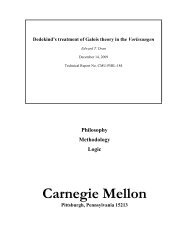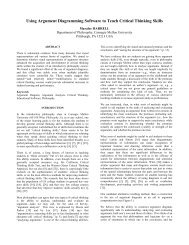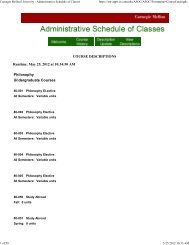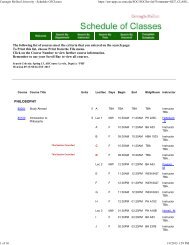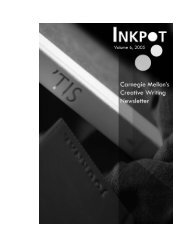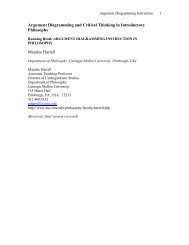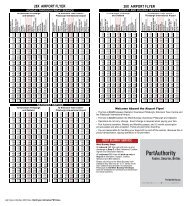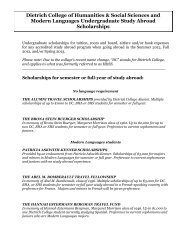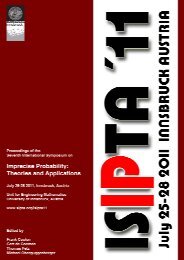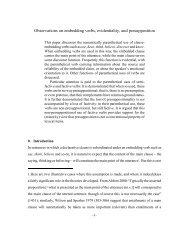First-Year English Program - College of Humanities and Social ...
First-Year English Program - College of Humanities and Social ...
First-Year English Program - College of Humanities and Social ...
You also want an ePaper? Increase the reach of your titles
YUMPU automatically turns print PDFs into web optimized ePapers that Google loves.
exist <strong>and</strong> interact within today's society while we consider how various constructions <strong>of</strong> identity<br />
shape culture <strong>and</strong> in turn are shaped by cultural factors, such as biology, politics, <strong>and</strong> even<br />
technology. Not only will contemporary ideas <strong>of</strong> identity come into play, but also historical<br />
perspectives on identity will aid our exploration <strong>of</strong> this topic. Students will engage with the<br />
subject through class discussion as well as work on their writing skills through a number <strong>of</strong><br />
writing assignments that will lead them to become contributors to the existing discourse <strong>of</strong><br />
identity studies.<br />
Section E<br />
N. Datta<br />
10:30-11:20 AM<br />
Surviving Tourism: Stories We Would Really Like To Tell.<br />
Why do people feel the desire to travel to far-<strong>of</strong>f <strong>and</strong> exotic destinations? Why do tourists<br />
willingly submit themselves to the hassles <strong>of</strong> the airport <strong>and</strong> immigration checks as they travel<br />
abroad? Why do a lot <strong>of</strong> tourists in contemporary times disassociate themselves from the term<br />
“tourist”? How does tourism affect the production <strong>of</strong> social space? How do various tourist<br />
practices reflect changes in the way we have come to think <strong>of</strong> everyday life? These questions are<br />
linked to the ways we construct our identities, both as socially invested individuals <strong>and</strong> as<br />
individuals with a desire to find personal answers to personal questions. This course will allow<br />
students to address the issue <strong>of</strong> how tourism allows us to construct our identities both as social<br />
beings <strong>and</strong> as “unique” individuals. The exposure to this general body <strong>of</strong> scholarship on tourism<br />
allows students to see tourism as a visible manifestation <strong>of</strong> this identity-construction process.<br />
This 76-101 section assumes that reading, writing, <strong>and</strong> making arguments are inseparable<br />
activities that are part <strong>of</strong> the process <strong>of</strong> responsible academic work. Students will utilize various<br />
interpretive tools to summarize, synthesize <strong>and</strong> analyze arguments. By the end <strong>of</strong> the course,<br />
students will ultimately contribute their own position about defining this “fun” filled, expensive<br />
activity called “tourism.”<br />
Section EE<br />
D. Haeselin<br />
10:30-11:20 AM<br />
Steal this Course: Piracy, Intellectual Property <strong>and</strong> Authorship in the Digital Age<br />
“Intellectual property is the oil <strong>of</strong> the 21st Century”- Mark Getty<br />
The Internet has fundamentally changed the ways in which Western people access, use <strong>and</strong><br />
distribute information. This shift has spurred arguments about the nature <strong>of</strong> intellectual property,<br />
which, in turn, reconfigure notions <strong>of</strong> the need for individual privacy <strong>and</strong> the very nature <strong>of</strong><br />
economic production. This section <strong>of</strong> Interpretation <strong>and</strong> Argument will explore the debates<br />
surrounding cyberculture while attempting to formulate critical approaches to<br />
the questions: Can <strong>and</strong> should the current system <strong>of</strong> copyright protection reliably <strong>and</strong> justly<br />
promote innovation without infringing on basic notions <strong>of</strong> privacy <strong>and</strong> anonymity, even on<br />
globally linked networks? How do authorship <strong>and</strong> ownership change in this climate? And,<br />
perhaps ultimately, do the technological advances <strong>of</strong> the digital age foster a pragmatic space<br />
for progressive thinking, or do these advances simply underscore the contradictions <strong>of</strong><br />
contemporary society?<br />
Besides reading scholarly <strong>and</strong> journalistic articles from no earlier than the last four years, students<br />
will interact with some forms <strong>of</strong> media <strong>and</strong> texts that the class interrogates, including, for<br />
example, musical “mashups,” which are collages <strong>of</strong> music that complicate the definition <strong>of</strong><br />
4


